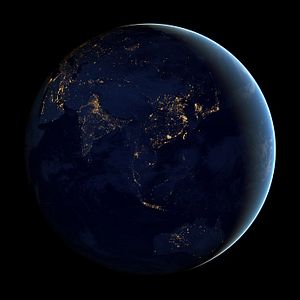Senior officials from the United States, Japan, India, and Australia — the so-called quadrilateral or ‘Quad’ group of countries — held their second consultative meeting in Singapore on Thursday, on the sidelines of an Association of Southeast Asian Nations senior officials meeting. The meeting follows the group’s first meeting after a decade-long hiatus in November 2017 in Manila, on the sidelines of last years’ ASEAN summits.
The four countries have broadly coalesced around the theme of a “free and open Indo-Pacific,” highlighting their common status as large democracies engaged in the region. Though not explicit in their rhetoric as a group, each country in the Quad has its hesitations about growing Chinese power and influence in the region.
Each of the four countries released a statement on the four-way consultations, without making any reference to the arrangement being a “quadrilateral.” All four statements noted some variant of the countries each support a free, open, prosperous, and inclusive “Indo-Pacific region.”
The U.S., Australian, and Japanese statements added that the four Quad countries would continue discussions on a regular basis, suggesting that the mechanism’s meetings would become more frequent. The Indian statement noted that it would continue to “partner with all countries and institutions in the region to promote the shared vision of a peaceful, secure and prosperous Indo-Pacific.”
The latest meeting comes just days after the Shangri-La Dialogue in Singapore, where neither U.S. Secretary of Defense Jim Mattis nor Indian Prime Minister Narendra Modi — both of whom delivered significant addresses on the Indo-Pacific region — made reference to the Quad.
The Indian statement on Thursday’s meeting made reference to “India’s vision for the Indo-Pacific Region as outlined in Prime Minister’s Keynote Address at Shangri-La Dialogue,” however.
Unlike the first round meeting of the Quad, Japan included a reference to a shared objective with the other three members with regard to “connectivity” in the Indo-Pacific region. India, meanwhile, continued to omit any reference to “freedom of navigation and overflight,” or “international law,” which continued to appear in the readouts released by the United States, Australia, and Japan.
India, however, did add a reference to maritime cooperation, which it had excluded from its readout following the November 2017 consultation. The inclusion of maritime cooperation comes after Modi’s address at the Shangri-La Dialogue made a focus on India’s presence in the Indian Ocean region a major theme.
This time around, the statements made no explicit reference to North Korea, likely a reflection of the reduced anxieties around its ballistic missile and nuclear programs, which were particularly acute when the grouping last met in November 2017. (India was the only Quad member to not explicitly cite North Korea in its November 2017 readout.)
The latest round of senior official-level consultations between the Quad countries show that the initiative has yet to see a major upgrade. This is not necessarily surprising. India continued to oppose Australia’s addition to the trilateral U.S.-Japan-India Malabar naval exercises — a move that would have demonstrated considerable momentum in the grouping’s security ambitions.
But the Quad continues to move along slowly and steadily. The hint of regular meetings suggests that the four countries will continue to explore ways to operationalize a common cooperative agenda in the Indo-Pacific.
































